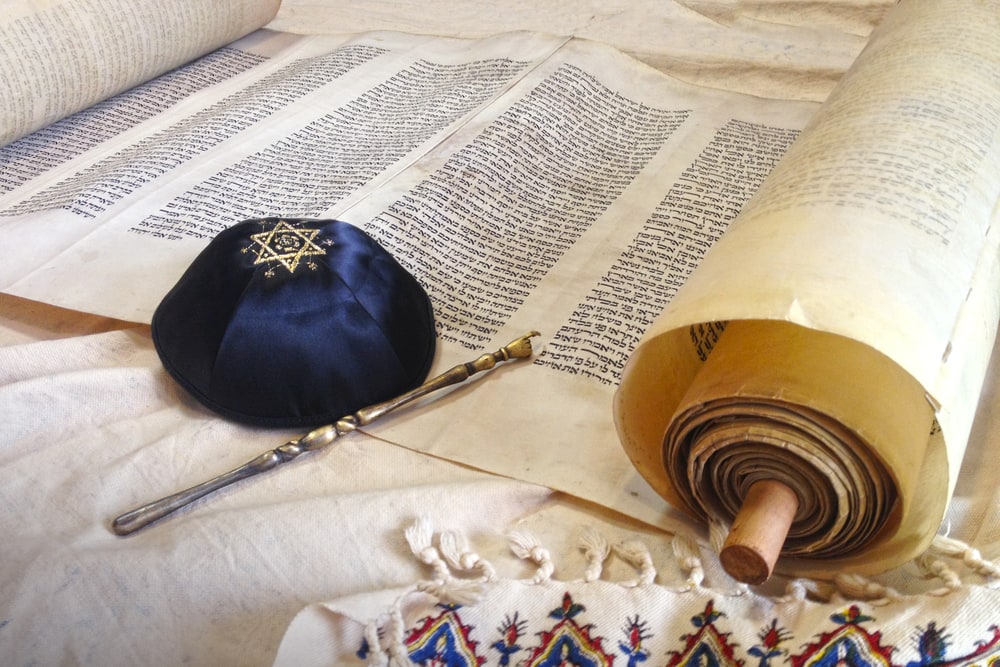
At Fox Monuments, we help Long Island’s Jewish families in difficult and stressful periods. By crafting Jewish monuments for departed loved ones, we help grieving families pay tribute to their heritage and religion. Naturally, the afterlife is often the primary focus of conversations about religion. Christianity has a fairly black-and-white answer to these questions. However, Judaism has a much more nuanced and complex response. Nonetheless, the Jewish afterlife is a critical element of religion as a whole.
Ambiguous Scripture: Sheol
Unlike Christianity, Jewish text doesn’t explicitly detail the concept of an afterlife. Nonetheless, after burying the deceased in front of a Jewish monument, there is no sense of uncertainty surrounding their spiritual path.
The Torah alludes to a life following existence on earth. This afterlife, which takes place in the Sheol, is a space where souls go immediately after death. While there’s nothing that describes this explicitly, many people living during this era were familiar with this. There are clues that indicate that Sheol was in the center of the earth, but no hard evidence. Therefore, after burial, people believe their souls would journey to this place.
The idea that it was a temporary resting location was central to the Sheol. Eventually, during the judgement day, God would wake those deemed worthy from sleep, and live forever. This somewhat coincides with the ideas behind the symbols present on Jewish headstones.
Messianic Era: Resurrection
The next distinct era in terms of Jewish thought regarding the afterlife developed around the time that Christianity emerged.
The primary belief behind this idea was that the resurrection would take place during the Messianic Era, or shortly thereafter. There is even more confusion regarding who would be resurrected. Some people held belief that everyone would experience resurrection. Others thought that only the righteous would be. Either way, a proper burial with a Jewish monument was still important.
The World To Come
Most often, this is the language believers associate with the concept of an afterlife in Hebrew writings.
In early sources of study for rabbis, the “World to Come” is mentioned, as a highly spiritual realm. It is also compared to desirable physical sensations, like sex. Regardless, for entry into this World to Come, Jewish people must be buried with proper Jewish monuments.
Scholars who have interpreted these texts have specific interpretations about the World to Come. Some believe that the World to Come is during the resurrection. In this line of thinking, the righteous would enjoy living after the event. However, others believed that the World to Come would arrive even after the Resurrection, with all of those who were resurrected. This school of thought posits that those participating would die a second death.
After that, they’d experience the bliss of the World to Come in a purely spiritual sense. The third interpretation states that this bliss would immediately follow life. For this reason, people pay close attention to the design of Jewish monuments.
One ancient tradition of designating a person to protect the body is still relevant today. Called Shemira, this practice requires a non-family member to protect the body before it is buried. In order to pay tribute to deceased relatives in the afterlife, lighting Yahrzeit candles is a common practice.
Do Heaven and Hell Exist in Jewish Writings?
The concepts behind Heaven and Hell in Judaism are not as specific as those in other religions. There is apocalyptic language that suggests a concept very similar to Hell. Called Gehinnom, Jewish texts describe this place where non-righteous people go as being fiery and dark.
Jewish people believe that life doesn’t end. Rather than dying, the Torah suggested that Abraham went to rest with his fathers. Similarly, the Talmud text relates the stories of people who travelled to and from this spiritual destination.
Modern Schools of Thought
In modern times, most sects of Judaism believe in the World to Come within these scriptures. In accordance with these beliefs, they also agree with the concept of a Judgement Day. Despite this, there is uncertainty between sects about exactly how the Judgement Day will unfold. As a way of paying tribute to the deceased, and helping them reach the afterlife, hosting a proper Jewish memorial service is essential.
Orthodox Jews maintain belief that physical bodies (rather than the soul) will be resurrected on the Judgement Day.
Jewish Monuments
To truly capture the legacy of your loved one’s life, an exquisitely-crafted Jewish memorial is the perfect first step. Our artisan designers can create a beautiful testament to your loved one’s life.
Offering full design, creation and setting services, Fox Monuments can take care of the whole process for your loved one. For more information, contact us today!